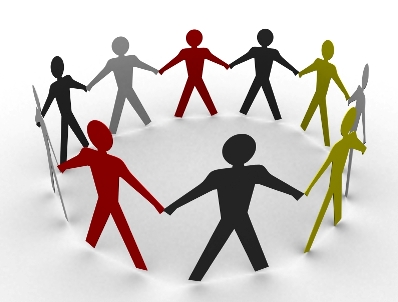Sharing is a means to build community, to distribute (and then re-distribute) the resources we need more efficiently, and to tread more lightly on our environment. Sharing is also a flourishing industry that's accomplished an incredible amount, but is really just getting started.
Shareable.net and Latitude Research are co-launching the first-ever (to our knowledge!) comprehensive study of how people like you share with others and interact with sharing industries–and we need your participation!
We especially hope to learn how online sharing might be training people to share offline. How do people understand sharing at a time when innovative Web platforms and local communities–new technologies and psychologies–are continually expanding what sharing can mean, connecting people to each other (and people to things) in ever-more intelligent ways?
The study will assess individuals' awareness of current shared offerings, their attitudes about sharing and trust, and their engagement with sharing across a variety of contexts. Participants will be contributing to a relatively new and increasingly important knowledge base. Moreover, they will be playing a critical role in helping to generate new ideas and opportunities for the future of sharing. (Results will be shared on both Shareable.net and Latitude's life-connected.com in the coming weeks.)
We'd love if you could take 15-20 minutes to answer a questionnaire about your feelings toward and experiences with sharing. To take the survey, click here. (Latitude's open innovation privacy policy is available here.)
From an early age, we're conditioned to think of sharing as having limited applications–as an oft-inconvenient social expectation. But something is changing about the world: something significant and pervasive, with seemingly unbounded potential. Advancements in technology (especially mobile and real-time technologies) are enabling new kinds of sharing amongst diverse networks of people, often over broad distances. And a new collective psychology is fizzling up: one which intuitively favors trust over skepticism of others, and one which builds influential communities from the bottom-up.
Collaborative Consumption Groundswell Video from rachel botsman on Vimeo.
Today, sharing offers material benefits that can significantly improve the lives of individuals. I can now make money by selling the things I don't need anymore on eBay (or by renting out items I don't need all the time on Rentalic) to someone else who does need them. As it happens, I've saved the environment from the pollution that goes along with manufacturing more products. (I've also probably saved the buyer or renter some money, too.)
Through "possession-on-demand" services like Bag Borrow or Steal (formerly Avelle), I can access luxury or hard-to-find products that might've been previously unavailable to me. And I can save money by shedding the high cost of owning and maintaining my own vehicle; instead, I can drive less, walk more, and access a car only when I need one (through Zipcar, RelayRides, and other car-sharing programs).

View larger version.
In addition to physical objects like cars and clothing, it's possible to share information, money, time, physical spaces–even agriculture–with people I might not already know. I can join a community garden or yard-sharing community to access fresh, local produce, spend time on a relaxing hobby, and make new friends in my community.
When you stop to consider, most things are shareable in one way or another, but what and exactly how we might share isn't always clear. "It's true that sharing is a relatively simple concept and a basic part of human life," explains Janelle Orsi. "What's new is that people are applying sharing in innovative and far-reaching ways, many of which require complex planning, new ways of thinking and organizing, and new technologies. In short, people are taking sharing to new levels, ranging from relatively simple applications of sharing to community-wide sharing initiatives — and beyond."
To participate in "The New Sharing Economy" study by Shareable.net and Latitude Research, click here.









